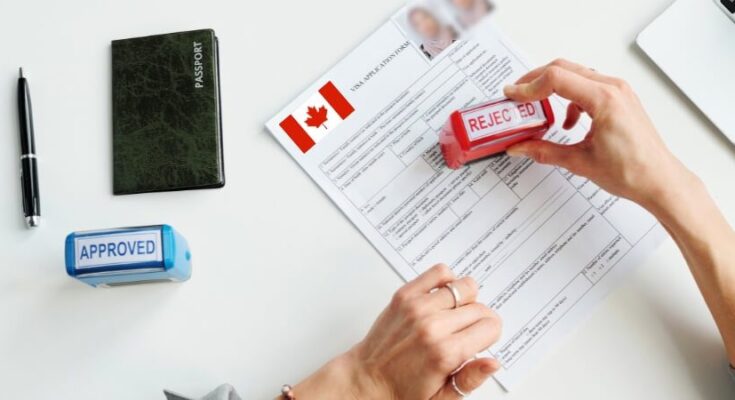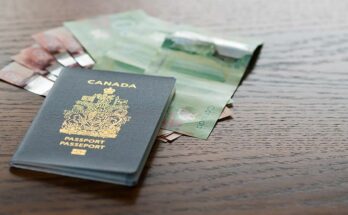Canada is a dream destination for many, offering opportunities for education, work, and tourism. However, navigating the visa application process isn’t always smooth sailing. Many applicants face rejections due to avoidable mistakes.
Understanding the reasons behind these rejections is critical to ensuring your next application is successful.
Common Reasons for Canada Visa Rejections
Incomplete or Incorrect Documentation
One of the most common causes of visa rejections is submitting incomplete or inaccurate paperwork.
Missing Essential Documents
Missing key documents like proof of financial capacity, identification, or previous travel history can lead to an outright denial. Consulates rely on complete information to make decisions.
Incorrect or Misleading Information
Providing false or inconsistent details—intentionally or unintentionally—can harm your credibility. Always double-check for accuracy and avoid exaggerations.
Failure to Prove Ties to Home Country
Canada wants assurance that you will return to your home country after your visit.
Why Strong Ties are Essential
Strong ties include family, employment, or property ownership. Without evidence, the consulate may assume you plan to overstay.
Examples of Sufficient Proof
Examples include employment letters, proof of property, or a return flight ticket. Ensure all submitted proof aligns with your claims.
Financial Insufficiency
Canada requires proof that you can support yourself during your stay.
Inadequate Proof of Funds
If your financial statements fail to show adequate funds, it signals that you might not manage your expenses in Canada.
Common Errors in Financial Documentation
Errors include outdated bank statements or insufficient funds. Maintain a healthy balance and show consistent income.
Inadequate Purpose of Visit Explanation
Your application must clearly outline why you’re visiting Canada.
Lack of Supporting Details in Letters
A vague or generic explanation in your Statement of Purpose (SOP) can weaken your case.
How to Strengthen Your Case
Include specific details about your visit, such as dates, activities, and your return plan.
Non-Compliance with Visa Conditions
Previous violations of visa conditions can haunt you.
Overstaying or Violating Past Visas
If you overstayed on a previous visa, it creates doubts about your intentions.
Past Immigration History
A history of frequent rejections or deportations can negatively impact your application.
Criminal Records or Security Concerns
Having a criminal record or posing a security risk can be another reason for rejection.
How Criminal History Affects Your Application
Even minor offenses can raise red flags. Canada takes security very seriously, and any record of criminal activity could indicate a potential risk.
Ways to Address These Issues
If you have a criminal record, provide a letter of explanation along with official documentation proving rehabilitation or pardon. Consult with an immigration expert to strengthen your application.
How to Avoid Canada Visa Rejections
Gathering Complete Documentation
Preparation is everything when it comes to visa applications.
Checklists to Avoid Missing Documents
Create a detailed checklist for required documents, including identity proofs, financial records, and invitation letters (if applicable). Missing even one document can lead to rejection.
Importance of Professional Assistance
Working with a certified immigration consultant or lawyer can help you navigate the requirements and avoid errors.
Proving Strong Ties to Your Home Country
Convincing the visa officer that you’ll return to your home country is critical.
Highlighting Family and Property Ownership
Submit evidence of family ties, such as birth certificates or marriage licenses, along with documents proving property ownership or rental agreements.
Consistency in Submitted Information
Make sure the details in your application match those in your supporting documents. Any discrepancies can raise doubts about your credibility.
Ensuring Financial Sufficiency
Showing you can fund your trip is non-negotiable.
Submitting Detailed Bank Statements
Provide recent bank statements (at least six months) to demonstrate consistent income and a healthy balance. Include proof of sponsorship if someone else is funding your trip.
Providing Proof of Regular Income
Include pay stubs, tax returns, or proof of business ownership to show ongoing income sources.
Writing a Strong Statement of Purpose (SOP)
The SOP can make or break your application.
How to Structure a Compelling SOP
Clearly outline the purpose of your visit, including the duration, activities, and your planned return. Keep the language professional yet personable.
Tips for Making Your Purpose Clear
Be specific. For example, instead of saying you want to “visit Canada,” mention you plan to attend a conference in Toronto and include the dates and event details.
Addressing Immigration History Issues
A poor immigration history can be improved with the right approach.
How to Explain Overstays or Violations
If you overstayed on a previous visa, acknowledge it in your application and explain the reasons honestly. Demonstrate how you’ve resolved the issue.
Ways to Present a Clean Record
Focus on recent travel history that demonstrates compliance with other countries’ visa requirements. This helps rebuild trust.
Steps to Take After a Visa Rejection
Understanding the Reason for Rejection
Carefully reviewing the rejection letter can help you plan your next steps.
How to Read the Refusal Letter
The refusal letter outlines specific reasons for rejection. Pay attention to these and address them in your next application.
Determining Whether to Reapply or Appeal
Sometimes it’s better to reapply than appeal, especially if the rejection was due to incomplete documentation. Appeals are more suitable for errors in decision-making.
Seeking Legal or Professional Help
When in doubt, turn to experts.
Immigration Lawyers vs. Consultants
Immigration lawyers specialize in complex cases, while consultants handle more routine applications. Choose based on your situation.
How to Choose the Right Professional
Look for professionals with positive reviews, proper certifications, and proven success rates in handling similar cases.
Reapplying After Rejection
A rejection doesn’t mean the end of the road.
What Changes to Make in a New Application
Review your previous application and fix any issues. Submit additional supporting documents or provide more detailed explanations where necessary.
Tips for a Successful Resubmission
Double-check your application, seek professional advice, and avoid rushing. A thorough and well-prepared application increases your chances of success.
Conclusion
Applying for a Canadian visa can be a challenging process, but understanding the common reasons for rejection is the first step toward success. By addressing these issues head-on, submitting complete and accurate documentation, and demonstrating clear intent, you can significantly improve your chances of approval. Remember, even if your visa is rejected, it’s not the end of the journey—there’s always room to reapply and strengthen your case.



